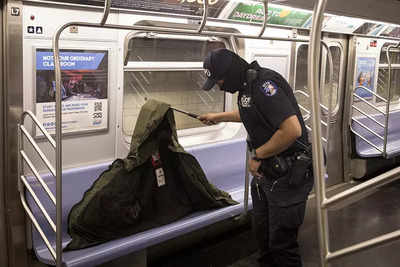
The New York Police Department (NYPD) issued a stark warning on Tuesday, underscoring the growing threats against healthcare executives following the fatal shooting of UnitedHealthcare CEO Brian Thompson on 4 December. Thompson was gunned down outside the Hilton Hotel in Midtown Manhattan in a brazen attack that has sent shockwaves through the corporate sector.
A surge of social media activity has targeted prominent figures in the health insurance industry, publishing their names and salaries, and in some cases, featuring them on “Wanted” posters plastered across Manhattan. These posters bear provocative imagery, including bullet-shaped graphics, alongside slogans such as “UnitedHealthcare killed everyday people for the sake of profit. As a result, Brian Thompson was denied his claim to life. Who will be denied next?” and “Wall Street CEOs Should Not Feel Safe. Deny, Defend, Depose.”
The Case So Far: Luigi Mangione’s Arrest and Alleged Motive
Luigi Mangione, a 39-year-old suspect, was apprehended in Pennsylvania on 9 December and has been charged with second-degree murder. Law enforcement authorities have revealed that Mangione was motivated by radical ideologies, drawing parallels to figures such as the Unabomber, whose writings similarly condemned corporate greed and systemic inequities.
A manifesto recovered in Mangione’s possession detailed his grievances against health insurance companies, accusing them of “profit-driven negligence.” Mangione cited personal experiences with denied healthcare claims as his motive for targeting Thompson, reportedly describing the CEO as a “symbol of corporate greed.”
Authorities believe Mangione meticulously planned the attack, surveilling Thompson’s movements for weeks. CCTV footage captured Mangione near the Hilton Hotel on several occasions prior to the shooting. On the day of the attack, Mangione allegedly waited outside the hotel before confronting Thompson in broad daylight, firing multiple shots, and fleeing the scene.
The Fallout: Escalating Threats and Online Support
The NYPD has warned that Mangione’s actions could inspire extremists. Social media users have praised him as a “martyr,” with some celebrating the attack and calling for similar actions against other executives. A viral Reddit post claimed, “The politicians are compromised, and the corporations are suffocating us. CEOs should all be considered targets.”
One particularly concerning social media post listed the names and salaries of eight health insurance executives, described by the NYPD as a “direct threat.” The post was widely shared, amplifying fears of further violence.
One user commented, “My mum was denied chemo multiple times and suffered terribly because of it. F* him, may he rest in piss.”* Another stated, “Corporate greed is costing lives. Thompson got what he deserved. Who’s next?”
Security Precautions and Corporate Response
In light of the threats, the NYPD has urged companies to enhance security measures for their executives. Many healthcare firms have already limited travel for their leadership teams and increased security at offices.
Experts caution that the incident highlights a growing animosity towards healthcare executives. “The perception of healthcare executives as villains due to high-profile cases of denied claims has created a toxic environment,” said Daniel Reynolds, a security consultant. “This tragedy is a chilling reminder of how grievance-driven violence can escalate.”
Despite widespread criticism of the health insurance industry, some online voices have warned against justifying violence. One user noted, “It’s important to address systemic issues, but this is not the way forward.”
The murder of Brian Thompson has reignited debate about healthcare inequities and corporate accountability. Critics argue that health insurance executives profit at the expense of patients, while others warn against demonising individuals and enabling violence.
Mangione’s upcoming trial is expected to shed more light on his motivations and planning. Prosecutors have announced their intent to seek the maximum penalty, emphasising the premeditated nature of the crime. As the case unfolds, questions remain about whether this tragic event will lead to meaningful reform in the healthcare system—or further deepen existing divisions.






